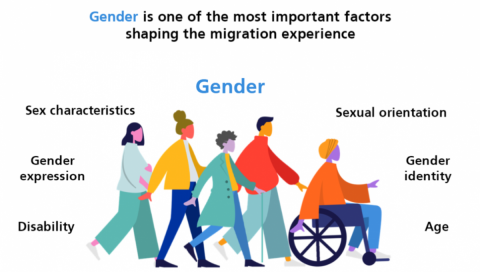Library
I Know Gender Module 16: Gender Equality and Migration
Gender Equality and Migration is a brand-new online training module, developed by the International Organization for Migration (IOM) and UN Women. This module helps learners understand how gender shapes every stage of the migrant journey, and why gender equality matters in migration.
